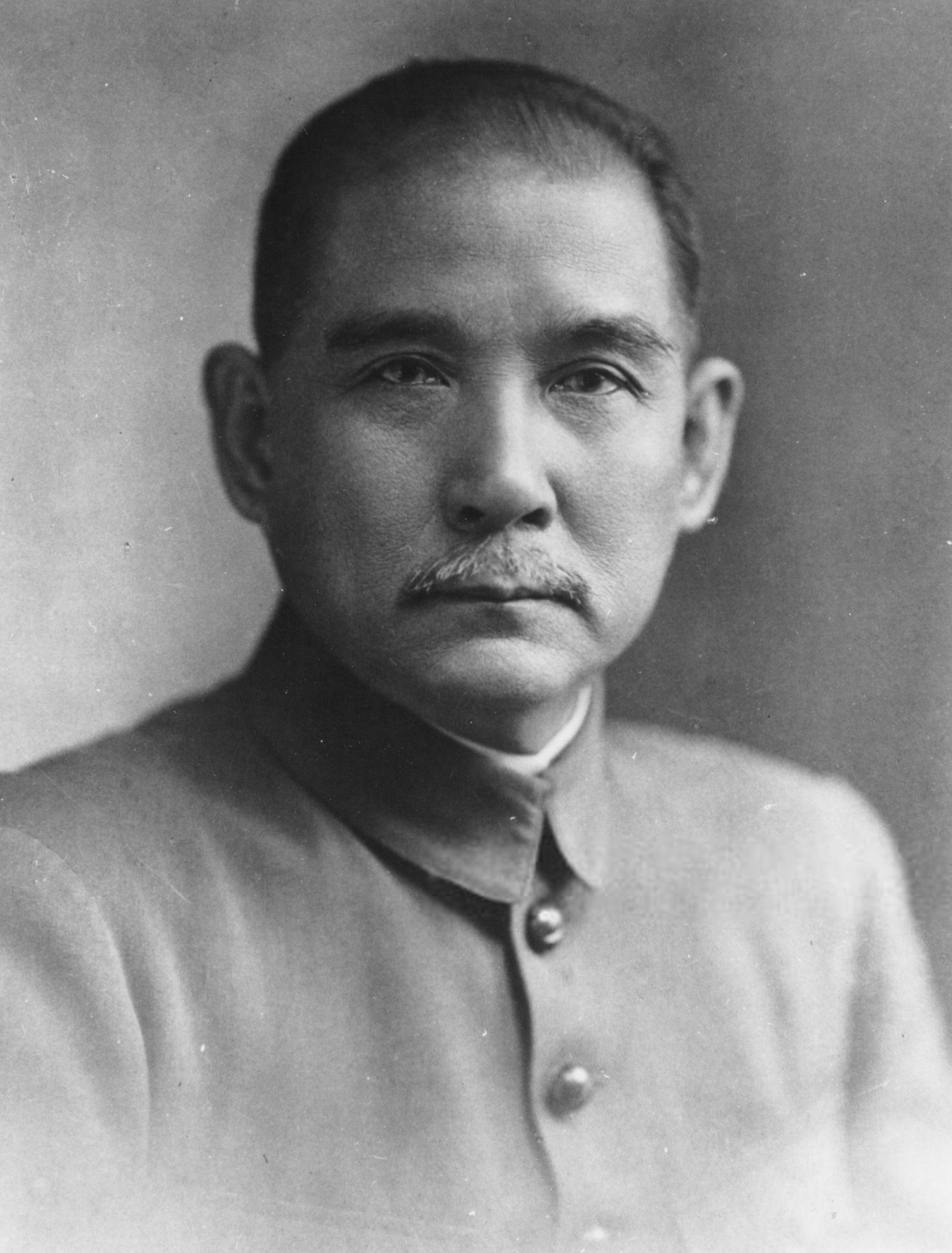Sun Yat-sen, << soon yaht sehn >> (1866-1925), a Chinese statesman and revolutionary leader, fought to establish a republic of China. He is generally called the Father of the Revolution. Sun was too idealistic to be an effective political leader. However, his Three People’s Principles (nationalism, democracy, and socialism) became the guiding principles of the Chinese republic, which was established in 1912.

Sun was born in the Zhongshan district of Guangdong Province on Nov. 12, 1866. He was educated at mission schools in Hong Kong and Honolulu, and became a doctor. From 1895 to 1911, he traveled widely in the United States, Japan, and Europe to organize sympathy for republican principles and to seek financial aid for his revolutionary movement against the Manchu (Qing) dynasty. He was aided by Chinese overseas communities and English, American, and Japanese sympathizers.
The Kuomintang Party.
From 1911 to 1922, Sun tried to unite China and establish a stable government. The Kuomintang Party, headed by Sun, became a leading political force after the 1911 Wuchang uprising to overthrow the Manchu regime. In 1912, Sun’s party adopted a constitution, and Sun became the temporary president of the first Chinese republic. The political situation was turbulent. To further ensure the unity of China, Sun resigned as president in favor of Yuan Shikai after only 6 1/2 weeks in office.
His later efforts.
In 1913, Sun disagreed with Yuan’s policies and organized a revolt. Sun fled to Japan, and the Kuomintang members of parliament were thrown out of office. Once again, the revolutionists assembled to set up a separate government under the 1912 Constitution. In 1921, Sun became president of this government in Guangzhou. He was driven out of his capital in 1922 but returned in 1923.
Sun continued to work for the unification of China. After failing to get assistance from the West, he turned to the Soviet Union. With funds and help from the Soviet Union, he reorganized the Kuomintang Party and Army in 1923 and formed a united front with the Chinese Communist Party. He set up the Whampoa Military Academy, with Chiang Kai-shek as superintendent. Sun died of cancer on March 12, 1925 in Beijing.
In 1929, Sun’s body was transferred to a national mausoleum erected in his honor in Nanjing. Politically, he was more effective after his death. His principles became the slogans of both the Communists and the Nationalists. In 1928, Chiang Kai-shek achieved Sun’s goal of a China united under a central government.
See also Chiang Kai-shek; China (History); Soong Ching-ling.
